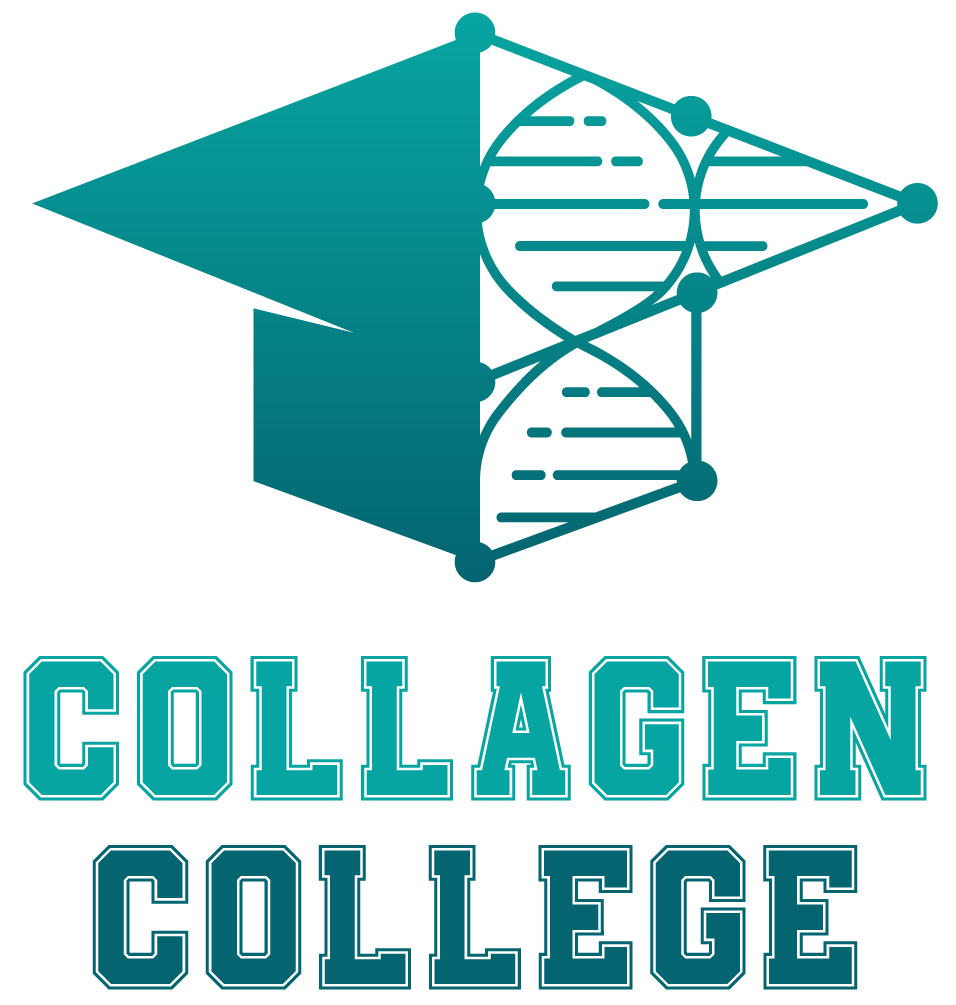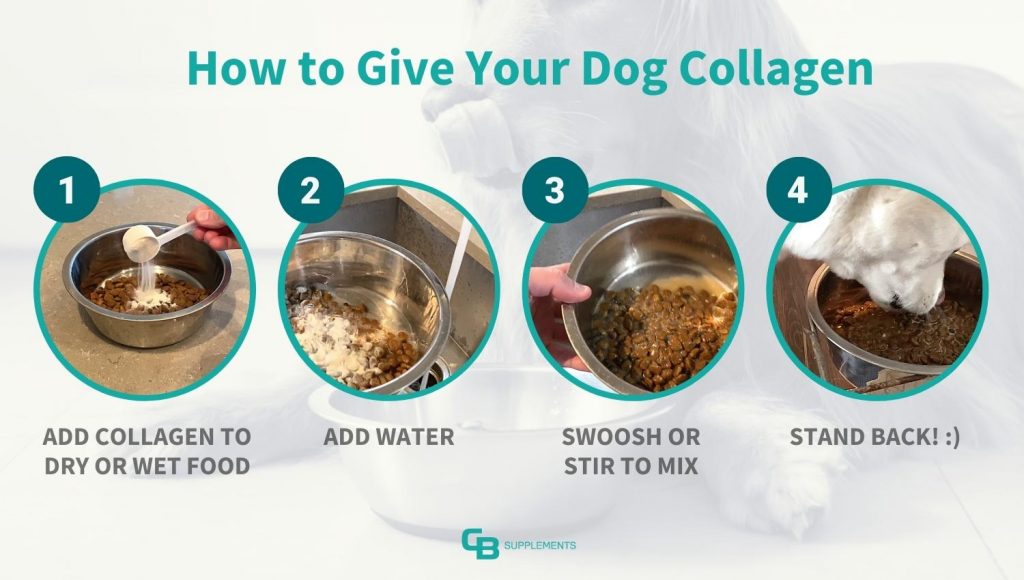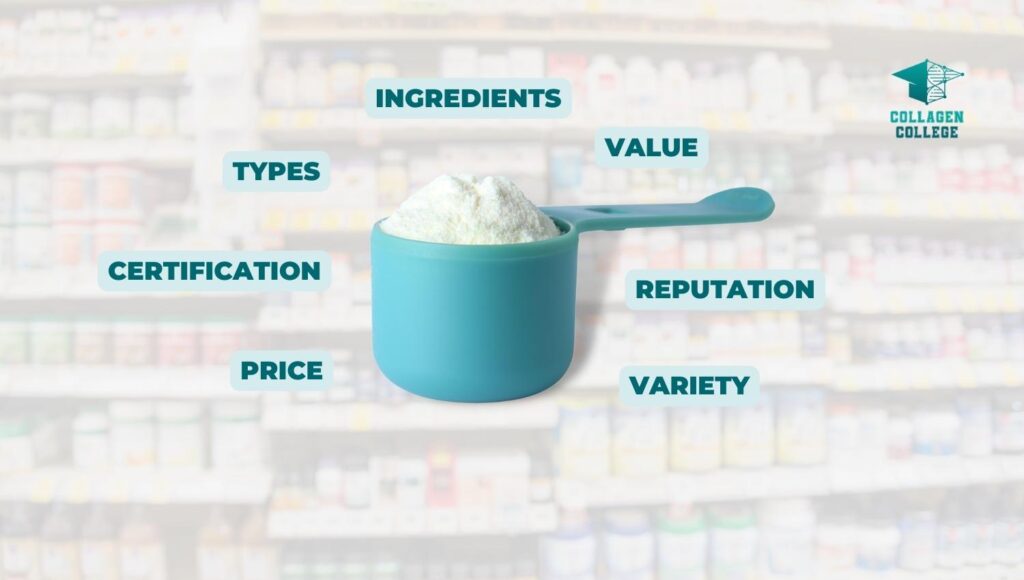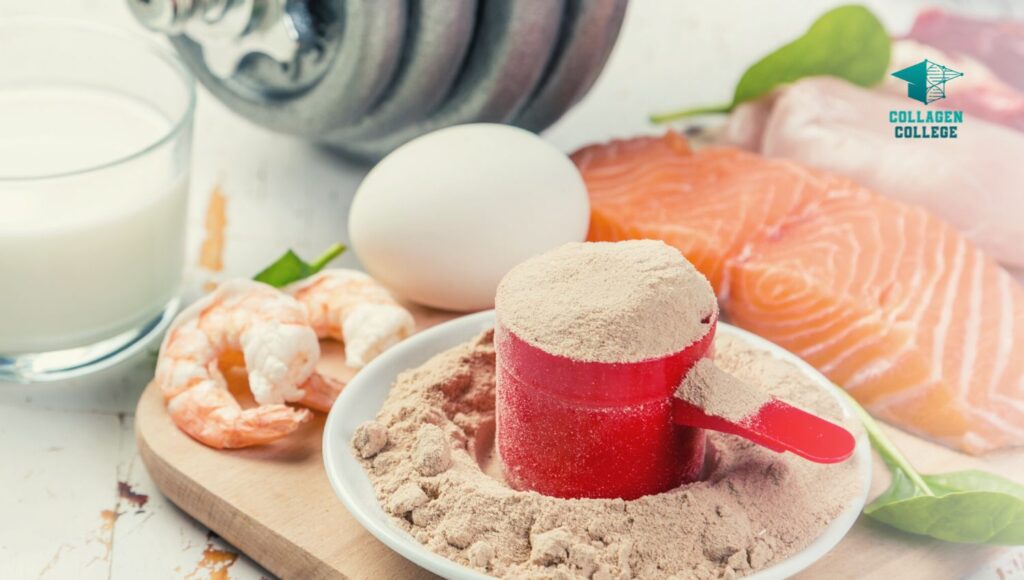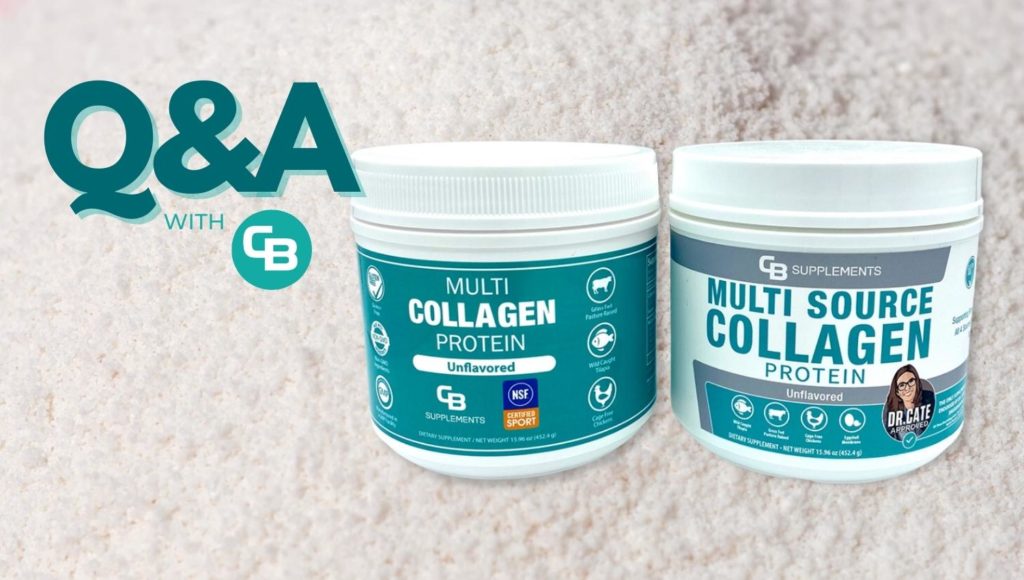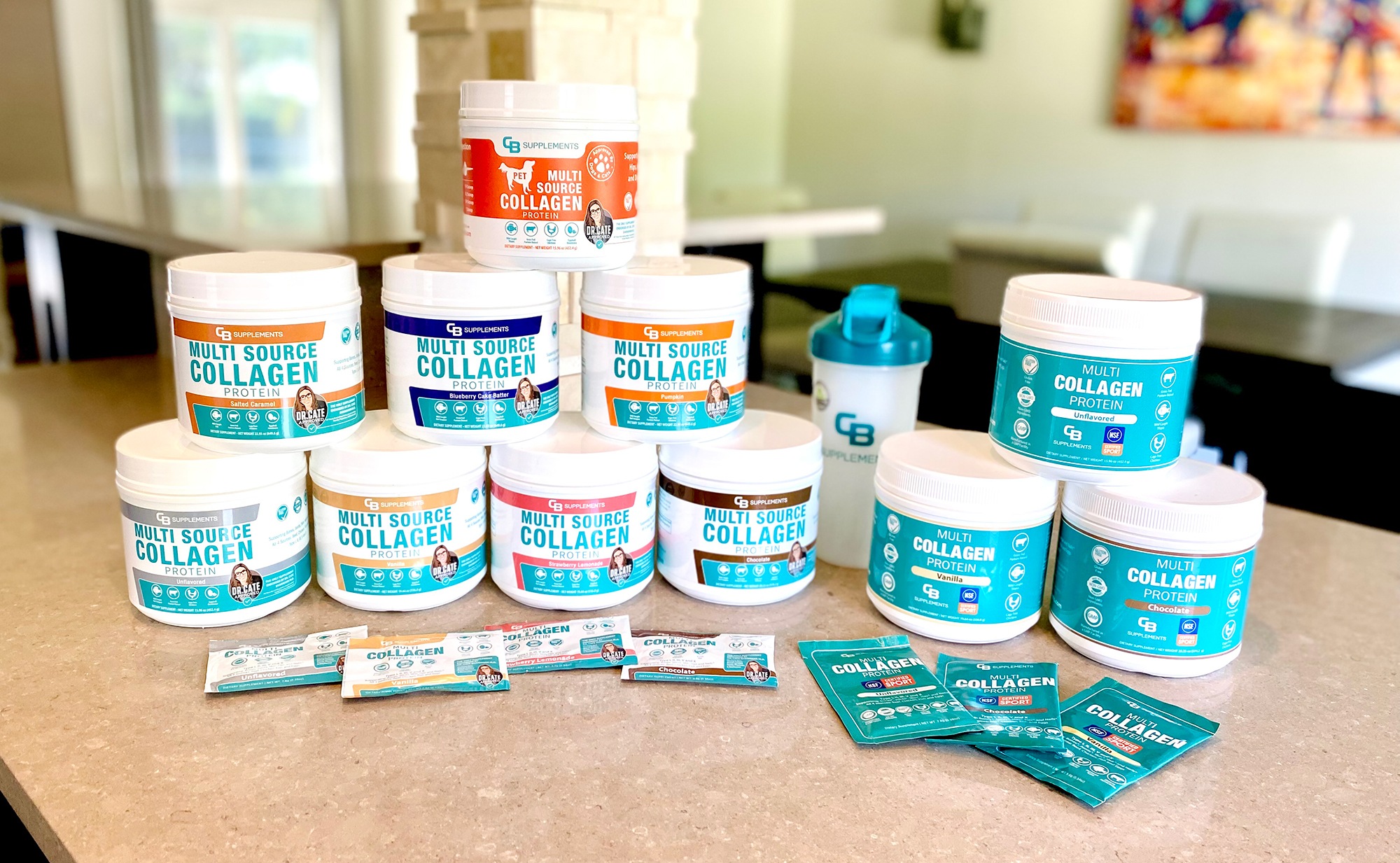Let’s face it, nobody looks forward to getting old.
Achy backs, stiff hips, sore knees. Before long, you’re popping aspirins like they’re Tic Tacs.
As much as we don’t like the idea of aging, it’s even worse when we see aging in our 4-legged best friend.
Dog Aging 101
If you’re a dog owner, and we assume you are since you’re here, you know this feeling. Maybe their first limp after a nap. A new lump on their back. Some gray in their coat. This is heartbreaking stuff.
Life without your canine sidekick is a hard reality to face. Unlike humans, dogs can’t tell us when their joints hurt or if their stomach bothers them, and that adds insult to injury as we watch our dogs age in front of our eyes.
Signs your dog is aging
Here are the most common signs that age is catching up with your dog physically:
-
- Difficulty getting around (e.g. stairs, jumping into the car)
- Less energy
- Cloudy eyes
- New lumps & bumps
- Incontinence
- White on their muzzle
Different breeds and sizes of dogs age at different rates. The more tuned-in you are to the typical signs, the sooner you can help your dog age gracefully.
— AKC
Problems dogs experience as they age
Here are 5 of the most common health issues dogs face as they get older:
- Arthritis in hips, elbows, shoulders. Poor diet, injuries, activity levels, obesity, metabolic disease, and age all contribute to dogs developing arthritis.
- Brittle/Dry/Losing hair. Diseases, infections, allergies, and pressure sores can all cause hair loss. Also, a general lack of vitamins and moisture in the skin can cause the hair to be brittle or dry.
- Loose bowels. Poor-performing digestive systems do not create strong bowel movements. What contributes to bad digestion? Stress, poor diet, lack of activity, poor sleep, and loads of medications all cause inflammation. This unleashes a whole ‘nother beast. Pun intended.
- Collapsing trachea. A dog’s trachea is made up of cartilage rings with a soft membrane at the dorsal tip. As they get older, this membrane tends to loosen. Although more common in small dogs, this condition can happen in any breed.
- Loss of appetite. Older dogs don’t need the same amount of calories they once did. Even so, a healthy appetite is part of a normal life. If your older dog doesn’t seem as hungry as it once did, check with your vet. If diseases and infections have been ruled out, pain or discomfort could be to blame.
What causes dogs to age?

This may seem like a silly question for us to answer. We all age. Humans. Dogs. Even bowhead whales who live to see TWO centuries (impressive) show signs of aging.
Yes, dogs have shorter lifespans living an average of 10 to 18 years. Aside from their genetic differences, what specifically causes them to age?
Collagen. It’s both the problem and the answer.
Collagen loss
Collagen is the most abundant protein in our bodies (and your dog’s body!)
It’s found in connective tissue (joints, tendons, ligaments, cartilage), blood vessels, gut lining, skin, and much more. But, collagen production starts to decline as we age, and the aging process, unfortunately, sets in.
The bad news is there’s no way for your dog to 100% avoid losing collagen. But, here’s the good news.
There are things you can do to slow down this process.
Dog Collagen Intro
As we explored above, when dogs age, their bodies change.
This means their nutrition should change, too.
We’re very transparent that we believe humans should get our proper nutrition from food first, then supplement. Dogs are no different. In addition to making sure your dog eats good quality dog food, supplements — like collagen protein powder — become essential in the later years.
Benefits of Collagen for your Dog
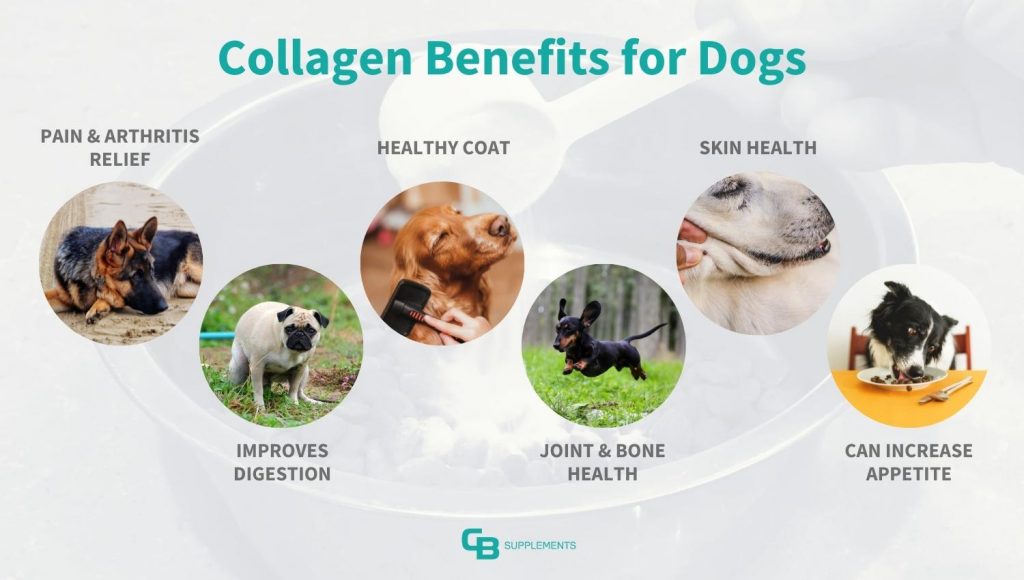
As humans, we can actively decide to supplement. But, dogs? Of course, they can’t do the same — even Chaser, the late smartest dog in the world, couldn’t buy a multi collagen supplement on his own! We as dog owners must make this decision to adjust their diet and provide them with the proper nutrition they need.
Here are the 6 benefits of adding collagen to your dog’s diet:
- Pain & Arthritis Relief
- Healthy Coat
- Skin Health
- Joint & Bone Health
- Improves Digestion
- Can Increase Appetite
Let’s explore each benefit below.
My dogs love the taste!
"Their coats are looking great and Hooper hasn’t had a limp from a long rest in a couple of months!"
- Tim B. (El Paso, TX)
28 Calories
7g Protein
Pet Flavored
1. Pain & Arthritis Relief
The loss of collagen plays a big part in tendonitis, arthritis, and degenerative disc diseases. Adding collagen back in can help fill in those gaps and provide pain relief. According to The Arthritis Foundation, Type II collagen can be helpful for arthritic joints.
2. Healthy Coat
Your hair is made up of protein. As your dog ages, the loss of collagen can result in dull, dry, or brittle hair. Or hair loss! Adding collagen can help replenish proteins back into the follicles, returning it to a healthy shine.

3. Skin Health
Collagen in your dog’s diet can help increase elasticity and improve mild skin conditions, such as itchiness or dryness.
4. Joint & Bone Health
Most of your dog’s muscles, cartilage, ligaments, and tendons are made from collagen. Fun fact, so are humans! Adding collagen can increase strength and support on a cellular level, which can help prevent or reduce injury. This is why every sporting dog (aka canine athlete) engaged in regular physical activity (agility, dock diving, police/military, tricks, showing, etc.) should take collagen.
5. Improves Digestion
Collagen is known to “seal and heal” the gut lining because collagen contains unique amino acids and bioactive peptides. Adding it to your dog’s diet can help repair damage in the digestive tract, promoting healthy poops. 💩
6. Can Increase Appetite
Sometimes dogs don’t eat well because they’re hurting (literally). As your dog takes collagen, you may notice an increase in appetite. Because of the high nutrient content, it’s often a tasty snack and can be offered on top of food to promote an empty bowl.
And when we say dogs lick the bowl, what we really mean is they’ll hammer the bowl!
Now that we have covered the benefits of giving your dog collagen, let’s talk safety.
Dog Collagen Safety: Possible Risks, Side Effects
Can dogs take collagen? Is it safe for dogs?
While taking collagen is generally considered safe, every dog is different and it can have relatively rare side effects on occasion. Here are some potential risks and side effects to watch out for:
- hives
- skin
- rashes
- wheezing
- diarrhea
- vomiting
What about fish? Specifically red snapper?

First of all, dogs can eat fish safely. But, is that all fish?
Since some collagen powders use fish as a source, is there safety concerns if it’s red snapper? The key here is the ciguatera toxin, a type of food poisoning, found in large reef fish (like red snapper) that is poisonous to humans and dogs.
The ciguatera toxin builds up mostly in the organs of the fish and it is not found in fish skin or bones — which is where our collagen comes from
— Dr. Cate, M.D.
Since our dog collagen comes from the skin and bones of red snapper fish — where the ciguatera toxin does not concentrate — those parts should be safe for pooches (and people).
Can dogs take collagen for humans?

Do dogs need a special kind of collagen, or will human-grade collagen do the trick? If you’re using a clean and quality unflavored collagen powder, your dog can take it safely since the ingredients are also pet-friendly.
With that said, here are two things to avoid when deciding whether to give your dog human collagen:
- Sweeteners. Though flavored multi collagen is delicious for humans, we wouldn’t recommend giving it to your dog. Natural flavors such as stevia and monk fruit (our choice of sweetener) are safe for dogs in small amounts, other artificial sweeteners are not for dogs. Just play it safe and avoid all sweetened collagen.
- Added artificial ingredients or preservatives. Many collagen supplements today want to add in all the buzz-worthy things to make their collagen “better” such as vitamins, minerals, and candy sprinkles — ok, maybe not sprinkles. We believe collagen is awesome on its own, so we don’t add tryptophan to our collagen nor do we add vitamin C to our collagen. Avoid human collagens with added anything when giving to your dog — they’ll thank you for it.
How to Give Dogs Collagen
If you’re looking to use a collagen powder, rather than pills, treats, etc. — this is a snap!
Here are the steps to giving your dog a collagen powder supplement:
- Add a scoop of collagen to your dog’s dry or wet food (see dosage below)
- Add a little water
- Swoosh around (if dry food) or stir it in (if wet food) — it’ll dissolve pretty easily
- Stand back and let them devour it!
Or, just watch this little video and see how much your dog will love it!
Dosage
All collagen supplements will be a little different in their serving size. Here’s what we recommend with our dog collagen powder based on weight.
- 0 to 20lbs = ¼ scoop per day
- 20 to 40lbs = ½ scoop per day
- 40 to 60lbs = ¾ scoop per day
- 60 to 80lbs = 1 scoop per day
Recipes using dog collagen
If your dog happens to be a culinary snob extraordinaire and demands a little more creativity than just kibble, water, and collagen — here are some easy recipes using dog collagen that’ll wildly impress.
- Scrambled eggs. Scrambling up some eggs is a great way to add extra nutrition to your dog’s food. Throw some collagen in while cooking or simply dash it on top of finished eggs and watch the bowl be licked clean.
- Bone broth. The best collagen you can get is from bone broth. You can serve it by itself, or mix it with food. To do this, you’ll need chicken or beef bones and water. You can crockpot them, simmer or keep them at a low boil for 12 – 16 hours. Check out this recipe from Honest & Tasty. For dogs, leave extra flavors, salts, and spices out.
- Broth popsicles. For hot summer days, try freezing bone broth into popsicle molds. Your dog will love the frozen collagen treat, and you’ll love the health benefits they get from it!
Natural sources of collagen for dogs
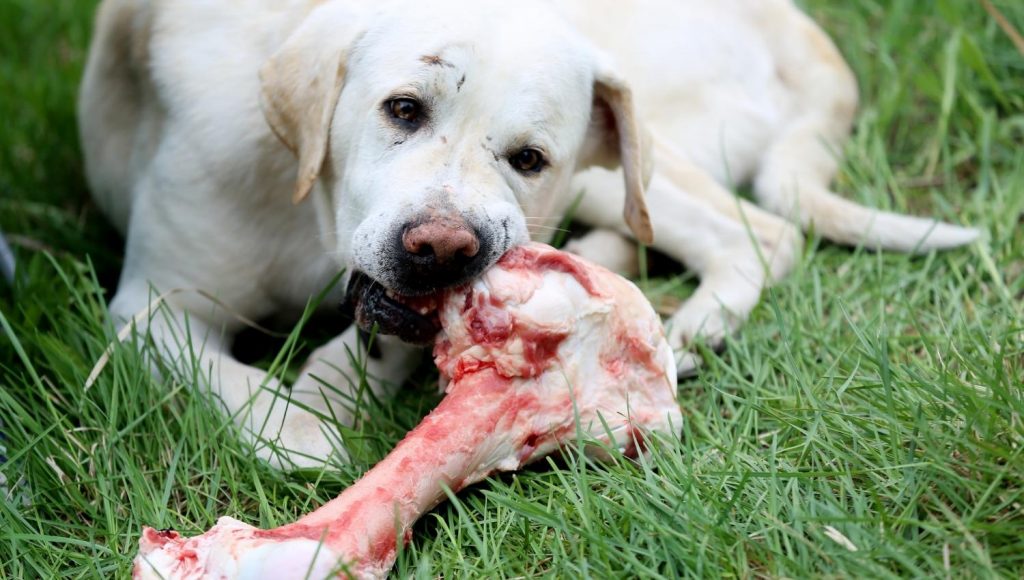
If you’re not much of a cook, don’t worry. Here are a few ways you can get collagen protein into your dog’s diet simply and easily.
- Beef tendons. Full of connective tissue and contain glucosamine and chondroitin.
- Natural chews. Look for chews free from grain, gluten, wheat, corn, and soy.
- Bones. Bones are calcified collagen!
Keep in mind that store-bought products with collagen may contain preservatives, artificial ingredients, and other chemicals that may not be great for your dog. Read the labels!
Tips for Buying a Dog Collagen Supplement
Not all collagen supplements are made the same. Here are 3 things to prioritize when looking to buy a dog collagen supplement.
- Sourcing/Ingredients. Check that label and read those ingredients! Choose grass-fed pasture-raised beef, cage-free chicken/eggs, and wild-caught fish — ingredients to a multi collagen protein supplement.
- Manufacturing. Look for GMP Certification (Good Manufacturing Practices). Though this doesn’t guarantee a quality product, it does mean the collagen is certified through the FDA. Don’t take a chance on a collagen supplement without GMP Certification.
- Clean. Non-GMO and free of all the things (gluten, dairy, soy, artificial sweeteners).
Final Thoughts
Collagen is found in just about every nook and cranny of the body. Both humans and dogs need a steady supply to stay young and healthy. Over time, your dog’s body doesn’t make collagen like it did in its younger days.
Adding collagen protein to a dog’s diet, through a dog collagen supplement or naturally, will be one of the most important nutritional decisions you can make for your furry friend!
